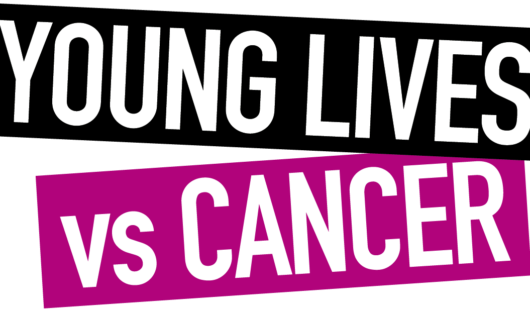Posted on Monday 8 January 2024
Cancer, healthcare and children’s charities ask Department of Health in Northern Ireland to reconsider hospital parking consultation
Today (Monday 8 January 2024) a group of 17 charities across the UK are urging the Department of Health in Northern Ireland to reconsider their consultation on re-introducing hospital car parking charges. The charities, including Young Lives vs Cancer, insist the charges will make it harder for those they support who have to regularly go to hospital.
On Tuesday 14 November, the Department of Health in Northern Ireland announced an eight-week consultation, looking into the option of re-introducing hospital car parking charges. This would repeal the current Hospital Parking Charges Act introduced in 2022, which was set to make hospital parking free in Northern Ireland from May 2024. Today’s letter from the group of charities, including members of the Northern Ireland Children’s Health Coalition and the Northern Ireland Cancer Site Charity Group, outlines the impact repealing the Act will have on children, young people and adults across Northern Ireland.
The letter states: “The Act is set to remove one of many significant financial challenges for those patients who must attend hospital regularly due to their long-term, serious or complex medical conditions…These patients are already disproportionately affected by additional costs that come as a result of their condition, including parking costs, but also other travel costs, household costs such as energy bills, and others. These are patients who have no choice but to regularly go to hospital to get the vital treatment and care they need.”
The letter has also been signed by almost 100 public supporters in Northern Ireland, who also oppose the repeal of the Act and want to see hospital parking made free as planned.
Young Lives vs Cancer, UK charity for children and young people with cancer, last year found that a family of a child diagnosed with cancer pay an extra £700 a month on expenses like heating, food, clothes and travel on top of an annual loss in earnings of £6,000. The charity’s Running On Empty report found that as part of this total, families also spend £250 a month on travel costs to get to and from hospital, often several times a week over a number of months or years.
Simon Darby, a Young Lives vs Cancer Social Worker in Northern Ireland, says: “I meet children and young people with cancer and their families in Northern Ireland every day who are struggling to get to treatment because of the cost of travel. The addition of parking is an extra cost that the families I support cannot afford to bear. We must make sure hospital parking is made free for these families.”
The charities also show concern around the timing and length of the eight-week consultation period, which launched mid-November and ran across the Christmas and New year period.
The letter states: “This is a busy and sometimes challenging time, especially for patients likely to be most affected by these changes, and in particular families with children with long-term, serious or complex conditions. The consultation period as it stands is not sufficiently accessible for them to respond.”
The charities believe that free hospital parking should be introduced at hospital sites across Northern Ireland as planned, and in closing say they are ‘ready and willing’ to work with the Northern Ireland Assembly and Department of Health to make sure these patients who are most affected by the changes get the support they need when visiting hospital.
Lauren Marks, Policy and Public Affairs Manager at Young Lives vs Cancer, says: “Children and young people with cancer across Northern Ireland are already struggling with the cost of travelling to hospital, before you add the cost of parking on top. We welcomed the news that hospital parking would be free from May 2024, and are concerned these plans could be at risk.
“We hope we can work with the Department of Health to make sure patients travelling to hospitals across Northern Ireland get the support they need to manage these costs.”
Related Posts
Young Lives vs Cancer responds to increase in funding for children’s hospices
Young Lives vs Cancer responds to announcement of increased funding for children's hospices

